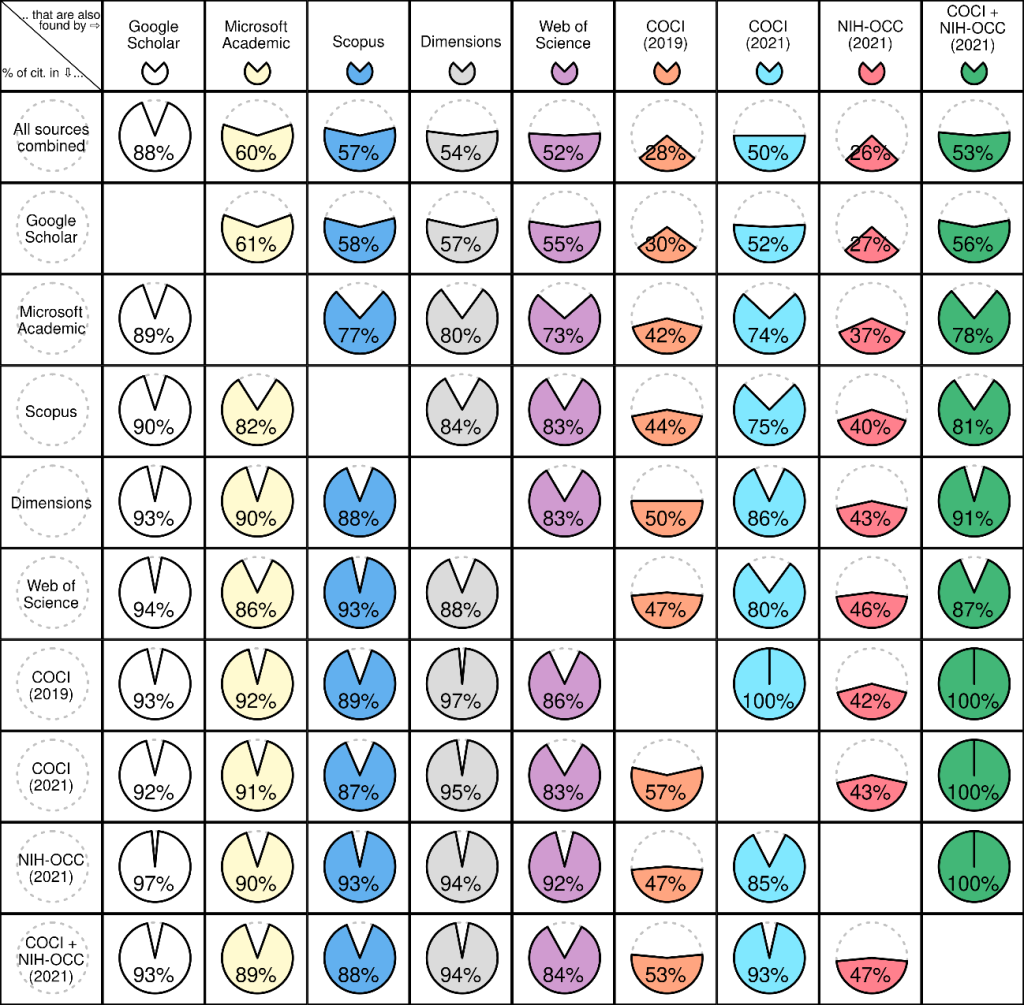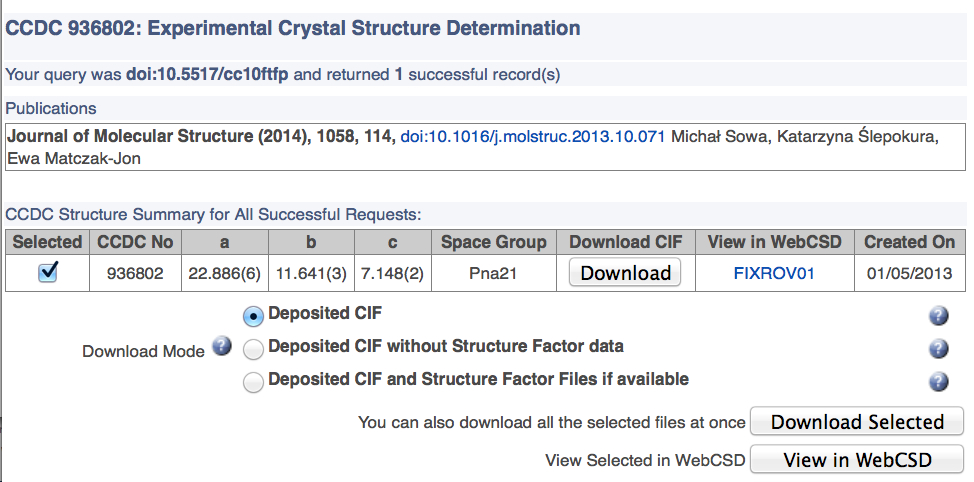About four weeks ago the Fall 2023 American Chemical Society meeting (#ACSFall2023). I have attended a few ACS meetings in person and even organized a symposium at the 2010 ACS meeting in Boston. This time too, I did not participate in person, tho visiting San Francisco again would have been nice. I gave two presentations (slides doi:10.5281/zenodo.8255394), but have not uploaded my slides of the first presentation to Zenodo yet.
Messaggi di Rogue Scholar

Guest blog post by Alberto Martín-Martín, Facultad de Comunicación y Documentación, Universidad de Granada, Spain <albertomartin@ugr.es> In this post, as a contribution to Open Access Week, Alberto Martín-Martín shares his comparative analysis of COCI and other sources of open citation data with those from subscription services, and comments on their relative coverage. Comprehensive bibliographic metadata is essential for the

The title of this post refers to the site http://howopenisit.org/ which is in effect a license scraper for journal articles. In the past 2-3 years in the UK, we have been able to make use of grants to our university to pay publishers to convert our publications into Open Access (also called GOLD). I thought I might check out a few of my recent publications to see what http://howopenisit.org/ makes of them.
Egon Willighagen recently gave a presentation at the RSC entitled “The Web – what is the issue” where he laments how little uptake of web technologies as a “*channel for communication of scientific knowledge and data” *there is in chemistry after twenty years or more. It caused me to ponder what we were doing with the web twenty years ago.
Science is rarely about a totally new observation or rationalisation, it is much more about making connections between known facts, and perhaps using these connections to extrapolate to new areas (building on the shoulders of giants, etc). So here I chart one example of such connectivity over a period of six years.
OK, you have to be British to understand the pun in the title, a famous comedy skit about four candles. Back to science, and my mention of some crystal data now having a DOI in the previous post. I thought it might be fun to replicate the contents of one of my ACS slides here. Firstly, a DOI is one implementation of a more generic (and quite old) concept known as a Handle. This is one form of a persistent digital identifier.

I have mentioned the Amsterdam manifesto before on these pages. It is worth repeating the eight simple principles: Data should be considered citable products of research. Such data should be held in persistent public repositories. If a publication is based on data not included with the article, those data should be cited in the publication.
I am at the ACS meeting, attending a session on chemistry and the Internet. This post was inspired by Chemicalize, a service offered by ChemAxon, which scans a post like this one, and identifies molecules named. I had previously used generic post taggers, which frankly did not work well in identifying chemical content. So this is by way of an experiment.

The bimolecular nucleophilic substitution reaction at saturated carbon is an icon of organic chemistry, and is better known by its mechanistic label, S N 2 . It is normally a slow reaction, with half lives often measured in hours.
We recently developed a new computational chemistry practical laboratory here at Imperial College. I gave a talk about it at the recent ACS meeting in Salt Lake City. If you want to see the details of the lab, do go here. The talk itself contains further links and examples.